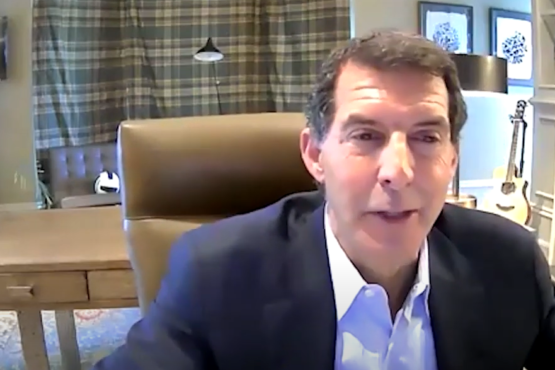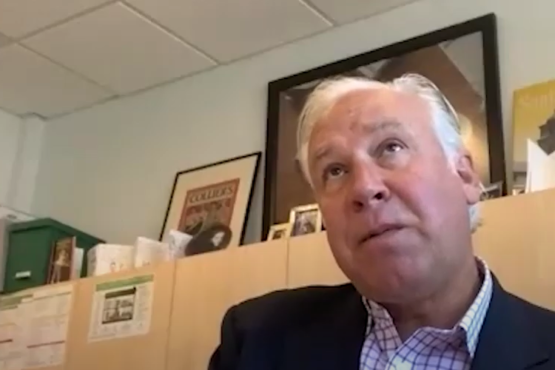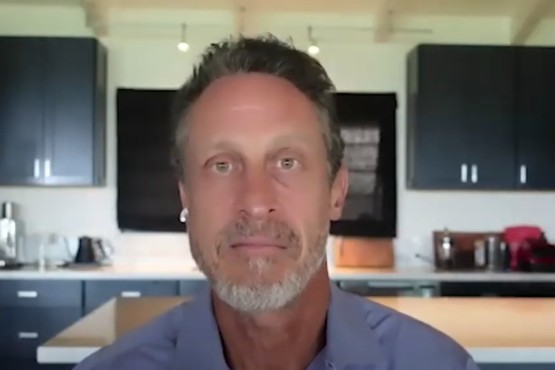Today we’re joined by Darin Gordon, one of the most preeminent experts on the Medicaid program in the country, having served as the nation’s longest serving director of a state Medicaid agency effort. For 10 years, Darin ran Tennessee’s TennCare, an $11 billion healthcare enterprise that provides Medicaid services to over 1.5 million Tennesseans. During his time, Tennessee led the way and adopting managed care, dealt with expanding and later due to budget constraints, having to reduce beneficiary roles and experimented with innovative ways to reduce costs while improving care.
While Medicare is the federal health entitlement that gets most of the attention, it’s Medicaid that covers more Americans and has enabled states to innovate. In our conversation, Darin shares his insights into the future of the program and how we can improve care for the neediest American. And now please join me and our guest for A Second Opinion.
BIll Frist: Darin, let’s start right in and then we’ll start with Medicaid. And then let’s walk through several things to talk about Medicaid, where we are today, the whole value based arena as it applies to the Medicaid population world, and maybe more broadly than that. But let’s start at a really, really high level. Medicaid, 73 million people, the largest purchaser of healthcare of any government program. Just start off with the basics of what is Medicaid and how has it been designed both historically and where we are today.
Darin Gordon: Yeah, absolutely. So Medicaid is a jointly funded program by the federal government and state government. Federal government is the largest contributor, I would say the largest funder of the program, but it’s administered by the states. Historically has served the aged, blind and disabled, pregnant women and children. That was a historical construct. But as you know with the ACA, now it has stretched in over 36 states into covering a childless adults up to 138% of poverty.
Darin Gordon: And I should say in those categories, even historically aged, blind, disabled and the pregnant women, the children, you still had to be poor. It wasn’t just that you were poor, you had to be poor and you fit in one of those categories. So think of it as a safety net program, but one that has, in my opinion, and I think there’s some data to back it up, because of the fact that it is state and federally funded and states are constrained in where they get their general funding to support those programs, it has been one of the more active purchasers of healthcare of all the different sectors. I’d say Medicare Advantage is right there behind it just because some of the economic incentives and the way that that’s designed.
Darin Gordon: But Medicaid has constantly been on the forefront of thinking about how else to do the purchasing of healthcare in a more effective way. And serving a very complicated population that has not only healthcare challenges but environmental challenges that they have to contend with as well that make helping them to lead a successful life in some cases more challenging than maybe some other populations that don’t have the same economic stressors that this population.
BIll Frist: It has been so interesting over 30 years of Medicaid was in division and it maybe had a little bit of stigma around it unfortunately of being sort of a second tier class of care. It was a generalization and it was a clearly not true. But today when people think of Medicaid with its size, with its value is really on at least par with Medicare, and many people would say you get much higher value out of Medicaid. Explain a little bit that transition over that 30 year period.
Darin Gordon: Yeah, so historically the program was fee for service. It was run by the states, they offered a certain level of reimbursement, again, constrained by the state funding that was available and a lot of providers did not participate in the program as a result. The funding wasn’t sufficient. Again, it’s complicated because back in the early days we didn’t even fully appreciate the concept of the social determinants of health and other challenges that we need to be thinking through to help support providers in supporting this population.
Darin Gordon: As things evolved, and I don’t think it gets as much credit as it should, but as the program has continued to grow, or managed care has continued to grow in this particular program to where now over 75% of the lives are covered within managed care, I think you start to get elements that more mimic what you see for insurance generally, which really I think help lower some of the stigma. You see networks that are similar in Med Advantage and commercial with Medicaid longer. You no longer are carrying, in many cases, not carrying a Medicaid card, but I’m carrying a card maybe with Blue Cross Blue Shield or United or Anthem, which again, starts to help make it feel a little more mainstream.
Darin Gordon: But I also think the program and making sure that networks are adequate, while there’s still room to improve in different markets, I think that’s grown as well. And so it starts to feel more like what you see elsewhere and I think that’s helped.
BIll Frist: So much of the debate today, and will be over the next several years at least from certain constituents, is Medicare for all or allow people to buy into Medicare. But over the last six months you’ve begin to hear a lot more of why don’t we give people the opportunity to buy into a state’s Medicaid program. That is for the most part, very effective managed care that in many ways takes into consideration much more of the social determinants than a fee for service Medicare. Do you see that trend continuing over time?
Darin Gordon: Yeah, I think the reason you’re starting to have the conversation about what else can be done to help folks that don’t have access to insurance, and obviously one of the large tensions is the affordability aspect of it. And lately you are hearing it’s like well if you look at purchasing healthcare for an individual, of the different products that are out there, Medicaid in most states because of their purchasing power, how they have managed programs so effectively and officially, is typically the most cost effective path. And so if you are able to create a pathway where an individual who’s not eligible for the program but may be able to buy into the services and the network that you have developed, that they may be able to do that at a price point that is more competitive than some of the other products that are out there.
Darin Gordon: I think the thing you always have to balance in that situation is what effect does that have on the other products that may be offered, for example, in the exchange? So does that start, because it is so cost effective, does that cause them to be more cost effective or does it drive some of them out of that space, which is not ideal? Or thinking about it from the context of the providers, well if more of their panel size is made up of individuals that are getting reimbursed at the Medicaid level, which is typically less than Medicare, does there start to become some pressure to raise the Medicaid reimbursement levels?
BIll Frist: Right, [crosstalk 00:08:02].
Darin Gordon: Yeah, and so there’s all these other things you need to think about it. But I think the thought process where you’re hearing folks say there’s still a segment of population that’s not accessing healthcare because of the affordability issue, that you are starting to hear some these new creative ideas of thinking is this an option?
BIll Frist: We’re hearing it just at the top line, but I think for many of our listeners who want to look through that crystal ball as to what might occur, you can expect that discussion to be out there and then clearly more meat will be put on it. And as people participate we’ll understand a lot more what that means.
BIll Frist: As we look into that crystal wall, and again always being ready to eat crushed glass, that’s always the danger for us all, what are the two or three more exciting areas that you see Medicaid wrestling with, may look to the private sector for solutions coming forward? But are there two or three areas based on your long, long history of managing and administering and now consulting that you’re either looking at or excited about or can help our listeners focus on in the future?
Darin Gordon: Think value based purchasing. While it’s been talked about quite a while, in fact I started going down that road back in 2008, we’re still very much in the embryonic stages of its development. I think it has a great deal of potential. I’ve had the discussion with folks as we were rolling out our initiatives here in Tennessee and as I talked in other states they say well is there evidence behind the move to value based purchasing? And I said well, what’s clearly evident is that fee for service has not driven to improve value.
Darin Gordon: And so we need to, as a country that has been known for innovation creativity, it is incumbent upon us to actually then try something that might and that could. Change [crosstalk 00:09:52].
BIll Frist: Because states can be [crosstalk 00:09:53] for that.
Darin Gordon: Absolutely. I think that’s where the states are really well set up to do. And so there are a variety of different models out there and states are experimenting in a variety of different ways to try to change that paradigm for the volume driven system to move more to value. It’s complex. Bringing it to scale is hard. Doing it in a meaningful way is hard. So a lot of what you hear folks claiming success that they’re doing it, it really isn’t getting to where I think folks who are trying to go.
Darin Gordon: And the way that I’ve always thought about this at a high level, if managed care insurance comes to do everything perfectly, the system is still sub optimized. If you can get the providers working in concert with the plans moving in the right direction of more efficiency, higher quality, they’re doing that perfectly as well. We’re still sub optimized. Eventually we have to then also get the members and the consumers to also move in that same direction. And then we’ll have an optimized system.
Darin Gordon: So it’s a journey. We’re so early on in the journey, but there’s a lot of thought processes and activities going around this. And again, we’re early on.
BIll Frist: And now a thank you to the partners that made this podcast possible. Tivity Health does health differently. It promotes a proactive approach and achieving a healthy lifestyle that embodies the leading social determinants of health, food insecurity, physical activity and social connection. With its family of healthy lifestyle brands, including SilverSneakers and Nutrisystem. Tivity Health is making an impact in reducing factors that lead to serious health issues and high medical cost such as chronic conditions, obesity, inactivity, social isolation and loneliness. To learn more, go to tivityhealth.com.
BIll Frist: Help me a little bit. We used the words for the last three years, fee for service to value based care. The words have kind of gotten worn out and tired. Some people look at it as the last federal effort and they say well that’s all failed and therefore they dismiss it. You and I are in conversation all the time. Are there any better words that we can use? I haven’t come up with it yet, but from fee for service to value based.
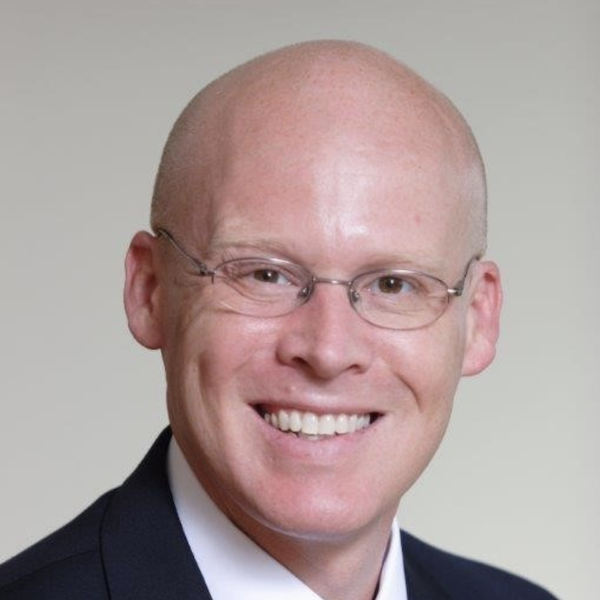
Darin Gordon is the former Director of Tennessee’s Medicaid program – TennCare, a $12 billion health care enterprise that provides services to over 1.5 million Tennesseans. Gordon has over 20 years of experience in public health care finance, policy and operations. During his time there, the program was also nationally recognized for a variety of innovations and leadership in managed care and payment and delivery system reform.
In 2015, Catalyst for Payment Reform named Gordon as a Pacesetter in Payment Reform. Gordon’s contributions have extended beyond Tennessee as well. He has also been involved in health care policy and innovation nationally through consultations with over 35 states; in his leadership roles as Vice-President, President and Immediate Past President of the National Association of Medicaid Directors; and his involvement in a variety of National Governors Association, health care related initiatives and task forces. Gordon’s involvement has also extended internationally with consultations with a variety of health officials from other countries.
Gordon is a member of the Cressey & Company Distinguished Executives Council and is a Director of Addus Homecare, Unified Care Group, Upperline Health, HHA Exchange and Siloam Health. He also serves as Chairman of 180 Health Partners and is an Advisor for myNEXUS. Additionally, Gordon serves as a Commissioner to the Medicaid and CHIP Payment and Access Commission (MACPAC) which is charged with advising Congress on Medicaid and CHIP policy.
Gordon is President & CEO of Gordon & Associates, LLC providing solutions to complex health care issues, strategic planning and consulting to clients throughout the country and across the entire health care ecosystem including government, payers, providers, investors and other consulting practices. Gordon is also a Founding Partner of Speire Healthcare Strategies, LLC where he advises executives on navigating and responding to the continually changing health policy landscape and assists his clients with designing and implementing successful solutions.
Darin Gordon: Yeah and I think it’s hard because it encompasses so many different things and I do fear that when we throw it out there, people automatically gravitate to something. So I don’t think we’ve done a good job defining what it is. At its core from my perspective, it is how can I reward, put providers in a position to bring their creativity to bear to where they can be rewarded for doing things that are nontraditional types of interventions, that are non billable, non code related interventions to improve the ultimate outcome for a member. How can I change the system so I’m not preventing that, which I think the current fee for service system does.
Darin Gordon: It takes so many different flavors, but I agree with you. The term doesn’t do it justice and we’ll see where it goes from here.
BIll Frist: So that’s one big area. What’s another big area, again, as we look into this crystal ball Medicaid, both a challenge needs addressing or one that we’re making progress on?
Darin Gordon: So social determinants of health, it’s a very popular subject. Also, you probably hear if you were to rate, like in a word cloud, which you hear more of, you hear value based first. Sitting close behind it is social determinants of health.
BIll Frist: Another one we probably need to get a better tagline for.
Darin Gordon: Absolutely, absolutely.
BIll Frist: Just saying the word puts us in the arena [crosstalk 00:13:16].
Darin Gordon: Totally. So basically looking, as I was talking about earlier, this population in particular has a lot of things that they’re juggling and contending with. Even folks in Med Advantage, they have the same, or in Medicare they have some of the challenges.
Darin Gordon: But we’re talking about nutrition and its role that it plays in how it affects a person’s overall health and wellbeing. We’re talking about housing, a common struggle that we’ve had over the years, particularly hospitals are looking at discharge and this was a common occurrence when I’ve been in Medicaid where a hospital didn’t have a place to discharge people to. Makes it complicated. Work, I always tell people I’m always feeling better whenever I’m working. That has an impact particularly on my mental health but it also does on your physical health as well if you’re not feeling that you have opportunities and continue to grow there.
Darin Gordon: And we think about these different items and how they interplay with the healthcare sector. And so generally accepted belief, that if these things are addressed, if there are needs there, if there are gaps there that if you affect those, that the benefits accrue on the healthcare side.
Darin Gordon: The challenge we find ourselves at today is we don’t know really to what degree it affects the healthcare side. But intuitively we all feel very comfortable. The chart, as you refer to a lot as well, the contributors to a premature mortality. The environment’s such a bigger player than healthcare. So we have to think about types of things. Are we saying the healthcare system needs to be expert in all these areas? I don’t think that’s it. But how do we bring these key contributing forces into a person’s health and wellbeing into the picture as we look at an individual and trying to help them move to a place of health and wellness, how do we bring those pieces to bear?
BIll Frist: And there are a lot of people looking at it. I think when we compare us trans nationally to other countries where the social services, and to your list we could add transportation. Transportation, food, housing, work, we know they have an impact, really on quality of life, on wellbeing, on health. And that differentiation between healthcare, the hospitals, the doctors, Bill Frist the transplant surgeon, insurance, Obamacare, Affordable Care Act, all of that, into that much larger at health and wellbeing. How do we integrate in that challenge there? And again, those challenges there are probably disproportionately affecting the fell of the Medicaid population.
Darin Gordon: Yes.
BIll Frist: And so that exciting area, any examples of progress being made in assimilating and bring the social determinants to the forefront to facilitate that integration of healthcare and health?
Darin Gordon: So most recently the federal government had approved a waiver. They allowed North Carolina basically to experiment and do something and they actually put money behind it, which is really the first time we’ve seen this in their Medicaid program, to allow them to experiment and see if I truly invest in some of these key areas, the social determinant needs, will we see an improvement in health outcomes and in lowering costs on the healthcare side? So that is, in the many years that I’ve, over 22 years I’ve been on Medicaid, that’s a very large step forward. And we’ll see where it goes from there. I’m anticipating that won’t be one and done, that’s the last state we see that, and wait for the results. I think the federal government, and they should be applauded, of stepping into this and saying okay, we all believe this, but we do need to test out, let’s put some money behind it and let’s see where it goes. And so that’s something to watch.
BIll Frist: Yeah, and I think that we do in the private sector, saying that the need is there, that you know what somebody’s diet, what they eat, the sort of nutrition, effects healing, effects whether they get sick [crosstalk 00:17:21] their immune system, the mental health, spiritual health, we’re developing in the private sector models and there are a lot of companies, the question of which of these you can develop a business plan to invest in and can go to scale, but a lot of companies are out there.
BIll Frist: Give us one last area, a third area. There’s a whole value based arena that we’ve talked about and this whole area of social determinants. Is there a third area in that crystal ball that you find exciting?
Darin Gordon: Yeah, and I would say it’s probably the least developed. You won’t hear people talk about it in this context, but I think it’s something you’ll greatly appreciate, is even when you’re thinking about value based purchasing or you’re talking about social or mental health, there’s still this statistic out there that troubles me, that 20% of the care that’s delivered today is not necessary. I would tell you that you don’t hear that talked about enough. I think a lot of the tools we have in that system today are insufficient. And how do we get at that?
Darin Gordon: And one of the things that I do think it’s a tangential benefit of value based purchasing, because at its core, one of the things you see in value based purchasing is more information, more data, more actionable information, making it down to the provider. I think when you’re doing that and if you do that and provide broader context to that provider, how they’re performing compared to their peers, it starts to create, at least open the question of like am I doing something outside of what the clinical evidence supports? Am I doing something I should be doing differently?
Darin Gordon: I believe that that will start to help chip away at that area, but at the end of the day, if we have 20% of services that are not necessary, you also have the efficacy of diagnostics. That’s a concern. That kind of thing interplays there. It all starts with the diagnosis. And how do we improve our effectiveness in treatment, or first diagnosis and then treatment? I think we have a long way to go there and I think some of these other things are touching on it but there is still so much more that probably will develop over the next five to 10 years in that particular, that area.
BIll Frist: Darin, and I can’t tell you how much I appreciate you taking time to be with us today. Let’s just close with are you optimistic? You’ve been at it a long time, you’ve seen a lot, you’re as active as anybody in the field of addressing healthcare and the financing and delivery and the organization around the Medicaid population, the underserved population, the less served population. Are you overall optimistic where we are today or sort of neutral or just we keep plugging away at it?
Darin Gordon: There’s so much opportunity for improvement in this area, so I’m very optimistic. I think, you and I have talked before, out of the entire healthcare system what Medicaid does, and one of the areas where you spend the bulk of the money in your later years, Medicaid is so active in that elderly and physically disabled space and there’s so much opportunity for us to do better there. And states, the private sector and the federal government are all actually doing some pretty innovative things to make drastic improvements there.
Darin Gordon: I think we have so much further to go, but the excitement and the interest about trying new things and having an impact, it’s been on an upswing and that’s been encouraging to see.
BIll Frist: I share your optimism and in our nation over the last 20 years, from an innovation creativity standpoint, compared to other countries in the pharmaceutical world, we’re the most innovative in the world. In the medical imaging world, diagnostics and the like, clearly the most innovative in the last 20 to 30 years. The area that we have lagged compared to other countries is in health service innovation. But it seems to me, and this is why I share your optimism, at the Medicaid arena where states are involved and administering and managing, there has never been a more exciting time and one with the most potential to innovate and create. And you don’t want to use the word experiment, but in truth since we don’t know the answers, experiment, there’s never been a more exciting time.
Darin Gordon: Absolutely. Absolutely.
BIll Frist: Darin, thank you very much for being with us today.
Darin Gordon: Thank you.
BIll Frist: And I look forward to spending many more conversations with you on these and other topics in the future. Thanks a million.
BIll Frist: This episode of A Second Opinion was produced by Todd Schlosser, the Motus Creative Group team and Snapshot Interactive. You can subscribe to A Second Opinion on Apple Podcasts or wherever you are listening right now. And be sure to rate and review A Second Opinion so we can continue to bring you great content.
BIll Frist: You can get more information about this show, its guests and sponsors at asecondopinionpodcast.com. That’s asecondopinionpodcast.com.
BIll Frist: Thank you again to our sponsor Tivity Health. Be sure to join us for our next episode with Dr. Marty McCary, New York times bestselling author, Johns Hopkins gastrointestinal surgeon and professor of health policy, whose book Unaccountable is now a hit TV series.
BIll Frist: A Second Opinion broadcast from Nashville, Tennessee, the nation’s Silicon Valley of health services, where we engage at the intersection policy, medicine, and innovation.

